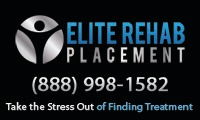Ohio Drug and Alcohol Rehabs
 Ohio is a state of many firsts—it was the first to make use of the stoplight, the first to use a police car, the first to have an ambulance service, even the first to have a professional baseball team. But while the “Buckeye” state was the pioneer for things that are so commonplace today, it also has a vast community of people who are committed to breaking the chains of alcohol addiction.
Ohio is a state of many firsts—it was the first to make use of the stoplight, the first to use a police car, the first to have an ambulance service, even the first to have a professional baseball team. But while the “Buckeye” state was the pioneer for things that are so commonplace today, it also has a vast community of people who are committed to breaking the chains of alcohol addiction.
If you are struggling with alcohol abuse and need help, Ohio has a vast selection of top-rated rehab centers for you to choose from.
Substance Abuse and Addiction
Alcohol addiction affects your body in a number of areas; the heart, lungs, pancreas, and of course, the brain. You’ll also develop a physical need for dopamine, the chemical responsible for the “pleasurable” or “euphoric” feeling you get during certain activities. Addiction alters the way your brain produces this chemical naturally, making it dependent on the external source instead. As a result, your body craves for more of that particular substance, effectively damaging your body from all the byproducts.
Overcoming addiction calls for proper medical care. Physical rehabilitation and psychological services are the largest segments of your recovery. You cannot simply quit your habit without experiencing serious consequences, both in body and mind.
Alcohol Addiction in Ohio
The National Institute on Alcohol Abuse & Alcoholism’s (NIAA) most recent study determined that there are about 17 million adults who possess alcohol use disorder (AUD). Furthermore, 1 in 10 children in the United States live in homes with at least one parent who has a drinking problem.
The 2014 Behavioral Health Barometer report by SAMHSA states that, “In Ohio, about 253,000 people aged 12–20 (17.5 percent of all people in this age group) per year in 2009– 2013* reported binge alcohol use within the month prior to being surveyed.”
Alcohol Addiction Treatment
Each alcohol rehab center treat addiction in their own ways. However, detoxification is a crucial first step in treating this disorder. Purification is the largest portion of the pie, and it will jumpstart your journey to recovery.
Again, if you decide to take the path of residential rehabilitation, you are required to remain at a facility for your full recovery. Outpatient rehabilitation requires weekly attendance, though you are free to return home after each session. This allows you to work, spend time with family and live your life normally.
In some cases, you may also need to take medication that will reduce any potential cravings. They will also help you deal with any resulting withdrawal symptoms as they arise. If your addiction is more severe, you may need to take meds that induce certain conditions to manage your alcoholic tendencies, such as meds that will cause nausea if you ingest alcohol. Here are some examples of pharmaceuticals that take an elevated approach to recovery:
Acamprosate. Manages your alcohol addiction by stabilizing your brain chemistry, effectively reducing your urges for consumption.
Naltrexone. Offsets your alcoholic cravings by outright blocking the chemical receptors that trigger opioid responses from alcohol consumption. Originally purposed for treating opiate addiction, it is now cleared by the U.S. Food and Drug Administration (FDA) for treating alcohol abuse.
Disulfiram. Inflicts headaches, nausea or vomiting if alcohol is consumed. Used in extreme cases where alcohol consumption is beyond simpler methods of control and treatment.
Types of Rehab Programs
There are effectively two types of rehabilitation. Residential rehabs require people to live in a facility for the duration of their recovery. Outpatient facilities, on the other hand, only require patients to attend treatment sessions for specified periods of time.
Choosing between the two depends largely on which one best suits your needs after a quick self-assessment. Here are the differences between the two.
Residential facilities are your best bet if you need individualized care and a regimen to follow. You recovery is tailored to your needs every step of the way. Outpatient programs offer more freedom and oftentimes use a group therapy approach. They are more discretionary choices, and are great alternatives for those who do not need intensive care and need something that will work around their schedule.
Residential rehabs are adhere to more rigid protocols when it comes to care but possess excellent rehab structure that helps you focus and maintain your resolve. This will help you fend off any negative influences or stimuli that will potentially lead you to a relapse.
Consequently, you will will be secluded from friends and family. Despite inevitable isolation, you will ultimately be in good hands; you’ll receive medical supervision by highly-trained medical professionals who will address all your needs.
Outpatient facilities also possess structure, though you also get the added benefit of returning to your home. Bear in mind that you will need to exercise especially good judgement, as your independence will be tested by your ability to stave off your triggers and temptations. On the flipside, you will have your loved ones for emotional support, if needed.
Detox Programs
Because of the poisonous nature of alcohol use, detoxification is necessary to promote full-fledged recovery. This process is not devoid of certain risks, so it includes proper monitoring and round-the-clock care. Residential programs are best for heavy users.
For less serious addiction, outpatient rehab programs are better options. They require regular visits to a hospital or facility near you for systematic evaluations while detoxing. Best of all, you will gain knowledge concerning drug abuse as well as much-needed counseling.
Ohio Rehab Facilities
The best rehab centers in Ohio are located in Carroll and Franklin counties. The Columbus and Toledo regions also have robust selections. These locations contain top-notch facilities that have excellent, highly-trained medical care staff.
When it comes to addiction, it is a two-front battle. You must cleanse your body, but your must also maintain your mental health during your quest for sobriety. Residential rehabs specialize in comprehensive physical and mental health for this very reason.
Outpatient facilities do this in a similar fashion, however they focus more on scheduled meetings rather than 24/7 care.
Ohio Mental Health Services
As stated earlier, mental health plays a big role when it comes to substance abuse, which is why dual diagnosis is crucial during recovery. Dual diagnosis is where an individual has a co-occurring disorder that manifest. Examples of co-occurring disorders, like gambling or sexual addiction, can complicate recovery. Consequently, trying to determine whether the substance abuse or mental disorder is more prevalent can prove difficult. With dual diagnosis programs, you will be evaluated for both disorders. This gives you the best shot of conquering your addictions and effectively take back control of your life.
The Benefits of Addiction Rehab
You may ask yourself, “Why do I need to go to rehab? Is it absolutely necessary for me to recover?”
Tackling your addiction on your own is not only incredibly difficult but exceedingly dangerous as well. There are many challenges you may not be able to overcome on your own. Foregoing medical guidance will place you at great risk, especially if you try to go “cold turkey” (the act of ceasing all substance intake all at once), and your body may go through painful withdrawals. You may also end up relapsing and unintentionally damaging your body.
With the help of a rehabilitation center, you will take the necessary steps toward sober living without putting yourself at unnecessary risk. There’s no need to take the hard road toward sobriety. There are many medically-trained professionals willing to invest in your complete recovery with care and understanding.









